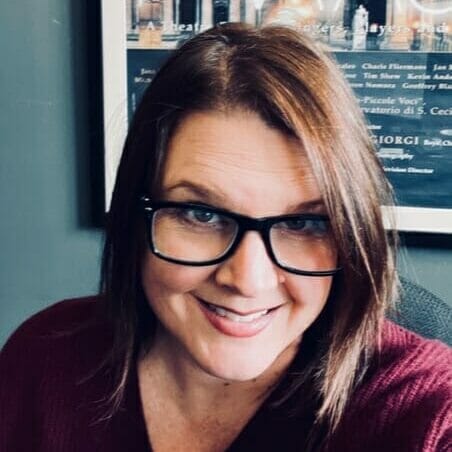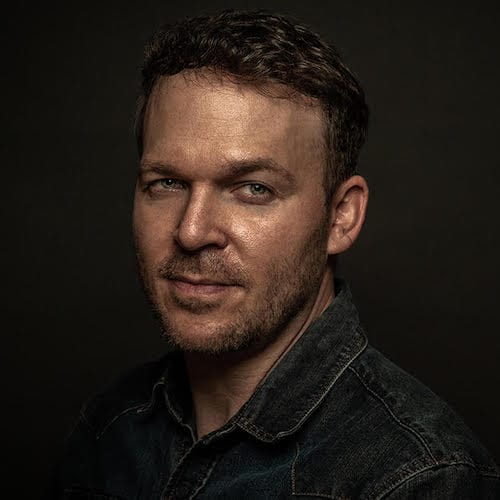[special_heading title=”Your Money and Your Life (I): First Things First” subtitle=”by Louise Westfall” separator=”yes”]Renegades: Born in the USA. What a pleasure to tune in to this new podcast, featuring conversations between former President Barack Obama and the Boss, rock star icon Bruce Springsteen! They’ve been friends for more than a decade, born of admiration for political perspective and musical prowess. As I listened to the first episode I was struck by some surprising similarities, despite vast differences: Obama–born in Hawaii to an African immigrant father and white mother; Bruce the product of a blue-collar New Jersey community. Each experienced family instability and financial need in the early years; each felt like a social outsider. Both men place high value on marriage and family life. The two men embody the American dream: overcoming barriers of circumstance and system to rise to the top of their chosen professions, significantly shape the political and cultural landscape, and make millions of dollars doing so.
Exceptions, I believe, that prove the rule as we take up the subject of economics in a sermon series I’ve called Your Money and Your Life.
Now, if the prospect of talking about money in sermons over the next month or so makes you itchy enough to turn off your computer, stop a moment. You’re not alone. Americans are notoriously private when it comes to their finances. It’s nobody’s business what I make and how I spend it. One of the most frequent complaints about church is that they are always talking about money…the same message over and over again: you have it, we need it, please give it. Thank you.
In this series, though, I want to pull back the lens to explore a much broader view. Money touches every one of us, every single day of our lives. We need it. Sometimes we think we don’t have enough. It’s the most obvious symbol of success, a ticket to access. Money confers power. You know the Golden Rule?–those who have the gold, rule. We live in a society with an obscene wealth gap, where the few richest households control over 80% of the wealth, while an increasing number of families struggle in generational poverty. A minimum wage job in Denver today cannot support a family. And in fact, over the past four decades, American workers have suffered a devastating loss of economic power. While the annual economic output of the United States has almost tripled in those forty years, most of that gain has gone to the wealthy. Even during the pandemic, the 650 U.S. billionaires’ wealth grew by a third, more than a trillion dollars. The windfall came just as millions of other Americans plunged into dire financial straits. More than 20 million people lost their jobs at the start of the pandemic, and though there’s been some recovery, many of our neighbors are a razor’s width away from severe need. Metro Caring, for example, reports more than double the clients they served in pre-pandemic times. Loss of wages has made many vulnerable to missed rent or mortgage payments and unstable housing situations. A recent headline in the Denver Post highlights not just inequity but growing inequity, with Blacks and people of color most affected.
So I don’t know how we could avoid talking about it, and considering how our faith affects our attitude and practices with this most alluring and troublesome reality.
The Bible has plenty to say about money. I’ll bet you all know the verse that says it’s the root of all evil. Hmmm. A closer reading acknowledges that love of money is the root of all evil, and it’s not hard to find examples of greed, trickery, obsession, transactional relationships, injustices, and even family estrangement to affirm its truth. But there’s more in Scripture than warnings, and I wonder if that’s because the value of money is at the heart of it a spiritual matter, and economic systems a reflection of our worldview. How does Christian faith shape our understanding of money and wealth and the kind of economy that offers opportunity for individuals and communities to thrive?
Jesus spoke about money more often than he did about heaven, and even suggested that wealth could threaten our experience of paradise. Our morning text may be his core teaching about it; a couple of verses from the so-called “Sermon on the Mount”–probably not one sermon, but an executive summary of Jesus’ most memorable sayings. He delivers this particular one without context or preamble. And it’s devastating in its utter clarity. A reading from Matthew in the sixth chapter, reading verses 19 through 21. Listen for God’s Word to the rich and the poor and everyone in between. [Matthew 6:19-21]
For where your treasure is, there your heart will be also. Jesus lays bare the essential truth that what we value most will command our deepest loyalty and highest priority. He asks us to consider carefully what that treasure is. And with down-to-earth metaphors of rusting metal, moth-ridden cloth and the constant threat of thieves, Jesus more than suggests centering spiritual rather than material gain.
Not an easy value to uphold in a culture in which wealth is a reflection of worth; and success is measured by the size of one’s portfolio not the effect it has on anyone else.[callout_box title=”What if we interpreted the commandment “love your neighbor as yourself” as a guide towards creating beloved communities in which people are prioritized over profits?” subtitle=””]Global philanthropist and author of the best-selling book The Soul of Money Lynne Twist identifies three toxic myths that stand between our treasure and our heart.
There is not enough.
More is better.
This is just the way it is.
It’s not hard to see evidence of how these myths distort and disfigure human communities. Driven by fears of scarcity, we strive incessantly for the almighty dollar…working long hours and overtime to get it done. Competition is favored over collaboration; self-interest over the common good. Production and profits take priority over people. In the extreme, nothing is sufficient to disrupt the narrative that money is good and more money is better. Scientific evidence of climate change, for example, is disregarded because adapting to its reality might curtail economic growth. A minimum wage increase is challenged because it might hurt existing bottom lines. And the impersonal machinery of capitalism keeps clanking on, turning the wheels of a society even more divided, even more anxious, even more unjust. Where will it end?
Friends, I don’t know–except by reclaiming the spiritual values at the heart of our faith: trust in a provident God whose gifts are abundant and sufficient, love of neighbor and the earth home we share, and worship of a God who says I make all things new and I am with you always, even to the end of the age. If these truths are our treasure, they will become pre-eminent in our practices. They will shape and form our relationship with money, our attitude about, the values we confer upon it, and the meaning we derive from it.
What if people of faith, for example, pictured God as a well-spring of gifts poured out upon us in abundance? How might that be reflected in an economy based on gratitude rather than fear, and sufficiency rather than the wolf at the window howling that there is not enough?
What if we interpreted the commandment “love your neighbor as yourself” as a guide towards creating beloved communities in which people are prioritized over profits? –in which the common good becomes an important consideration; or heck, if that sounds too squishy, what if we prioritized children in our economic decision-making?–how will our individual and collective choices help these the most vulnerable and innocent members of society thrive? What if we intentionally tried to align our acquisition goals and use of financial resources with our God-centered faith?
I know that these are not new questions for any of you. I am very interested in hearing your own perspectives and practices that seek to address these questions as a matter of faith. You are among the most generous of contributors to your church, and the effectiveness of Central’s downtown ministries over the years testifies to your generous support. I know that many of you make investments in projects you believe in, and regularly review your portfolio to consider such concerns as environmental impact, social justice, and human equality.
But I’m inviting all of us to think again about our relationship with money. Here’s a story and a suggestion to jumpstart the conversation.
Jack Bogle, founder and CEO of The Vanguard Group and credited with creating the first index fund made a mint as a bold and innovative investor. Jack was a Presbyterian elder, a churchman who committed much of his fortune to philanthropic enterprises. It was my privilege to meet him more than a decade ago, at a meeting focused on money matters with other Presbyterian clergy. Jack shared this story, and given the specifics and people involved, I have to think it was one he had told for many years. The fact that it was part of his standard repertoire made me believe it was one of those foundational stories upon which lives are built. Writers Kurt Vonnegut and Joseph Heller were invited to a party on posh Shelter Island given by a billionaire hedge fund manager. At one point Vonnegut pointed out that their host had made more money in a single day than Heller had earned from his wildly popular novel Catch 22 over its entire history. Heller nodded knowingly and added, “Yeah, but I have something he will never have…enough.”
Friends, what is “enough?”–in a world created by an unconditionally-loving, extravagant God who cares for us down to the hairs on our head and the hurts in our heart? And what would it take for us to live in that world?
Jennifer and Peter Buffett, daughter-in-law and son of financier Warren Buffett wrote the forward to the book recommended by the Presbyterian Church (USA) for congregational study this year: Decolonizing Wealth: Indigenous Wisdom to Heal Divides and Restore Balance, written by Edgar Villanueva, an enrolled member of the Lumbee Tribe. The title reveals of course that much of the wealth in the world today came from ill-gotten gains, from violence, inequality, greed, and systemic oppression of native people and slaves, and other workers. The accumulation of wealth, Villanueva says, is steeped in the trauma of colonization, and to heal from that means we have to face it (despite our resistance), repent from it, and together decide to build something new. Despite its challenging premise and impossible-to-avoid assessment, the book is grounded in Christian faith; its author draws from it as well as some of the traditions of his Native people to outline a process of healing. He writes “Mitakuye Oyasin”–“All my relations” means that we are all related, connected, not only to each other but to all the living things and all of Creation. Mitakuye Oyasin means that everyone is at home here. Everyone has a responsibility in making things right. Everyone has a role in the process of healing, regardless of whether we caused or received more harm. All our suffering is mutual. All our healing is mutual. All our thriving is mutual. [Villanuevas, p. 11]
I know the Faith Formation Council is planning some concentrated reading and conversation of this book, and I look forward to exploring its transformative potential more deeply with you.
I think it may help us locate our treasure, and find our heart. May it be so.





